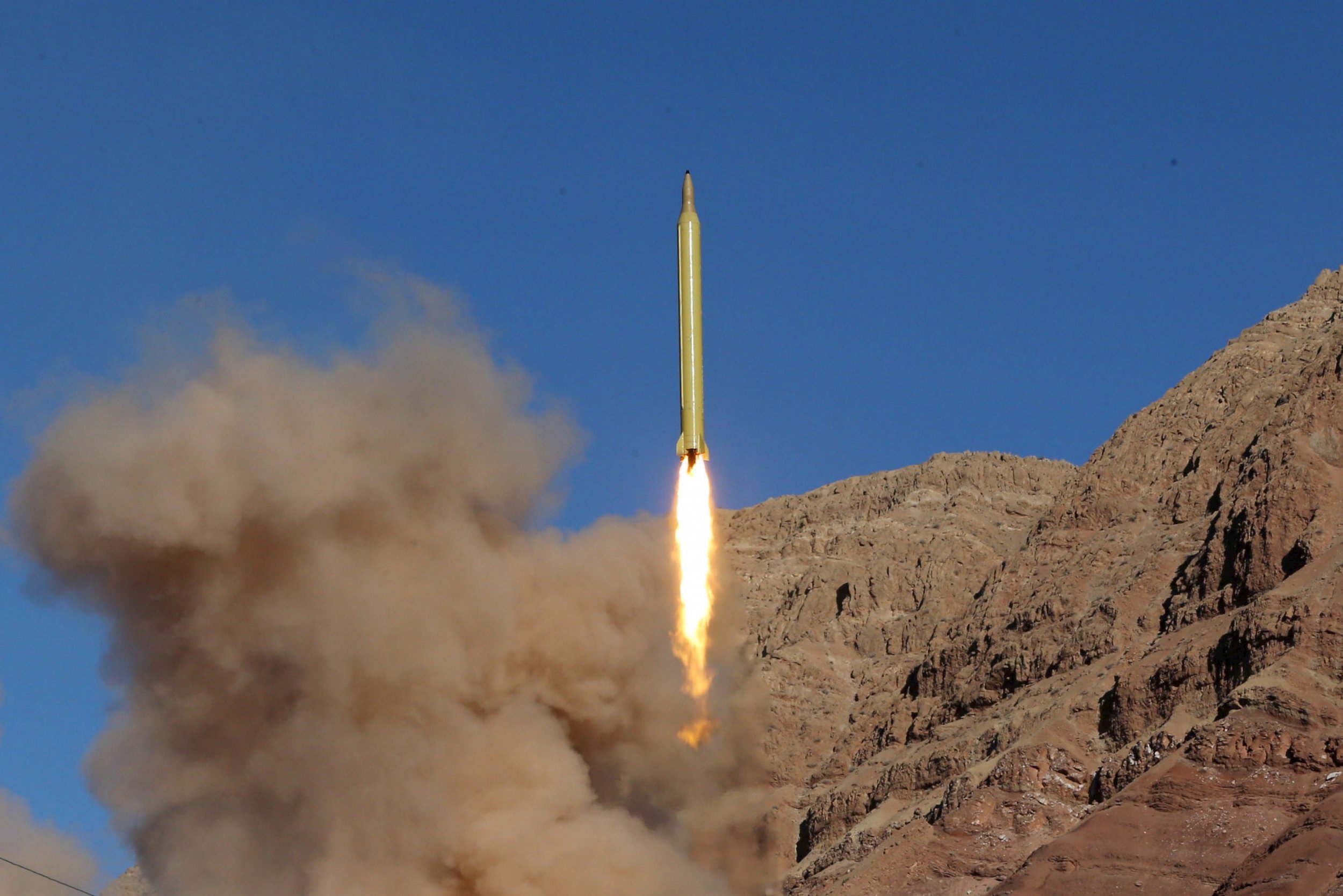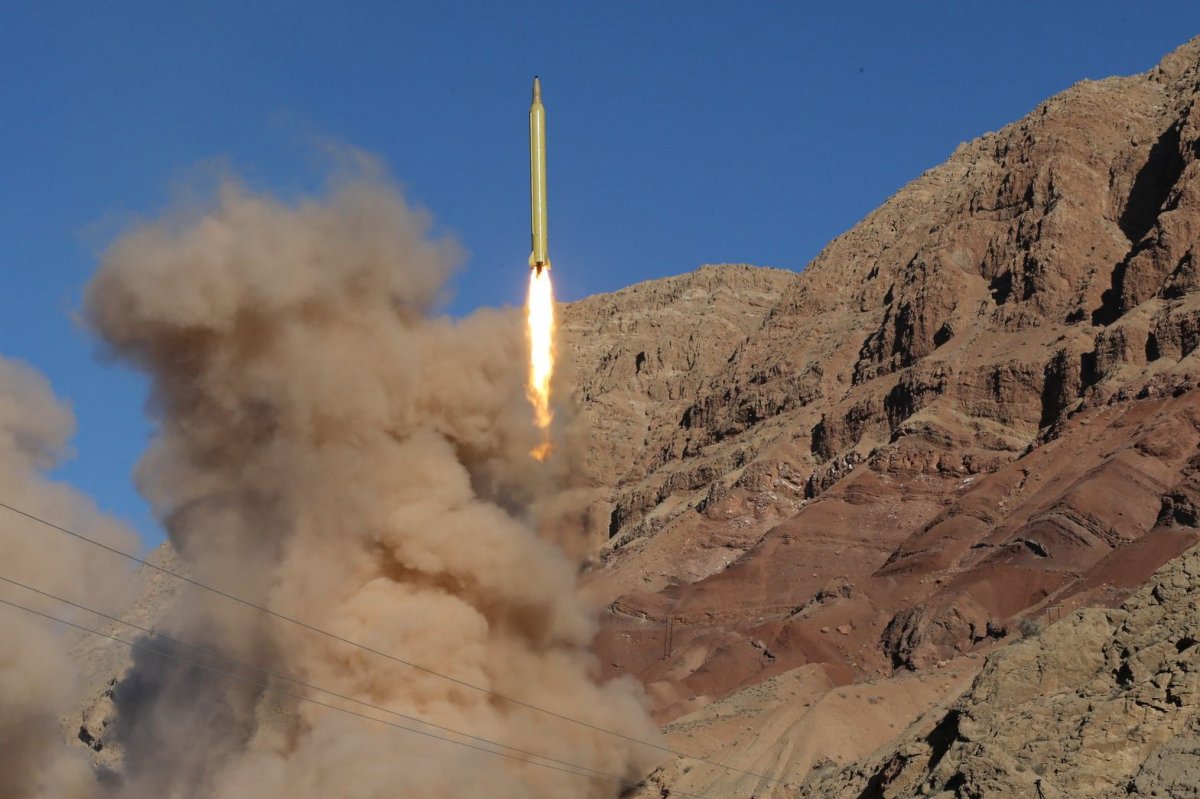
The deputy head of Iran's Revolutionary Guards warned Europe that if it threatens Tehran, the Guards will increase the range of missiles to above 2,000 kilometers (1243 miles), the Fars news agency reported on Saturday.
France has called for an "uncompromising" dialogue with Iran about its ballistic missile program and for possible negotiations over the issue separate from Tehran's 2015 nuclear deal with world powers.
"France is concerned about the continued pace of the Iranian missile program, which does not conform with (U.N.) Security Council Resolution 2231 and which is a source of destabilization and insecurity for the region," Foreign Ministry spokeswoman Agnes Romatet-Espagne told reporters in a daily briefing on November 15.
Resolution 2231 calls for Iran not to develop its capacity to make missiles capable of carrying nuclear bombs—and is enshrined in the nuclear deal.

Iran has repeatedly said its missile program is defensive and not negotiable.
"If we have kept the range of our missiles to 2,000 kilometers, it's not due to lack of technology. ... We are following a strategic doctrine," Brigadier General Hossein Salami said, according to Fars.
"So far we have felt that Europe is not a threat, so we did not increase the range of our missiles. But if Europe wants to turn into a threat, we will increase the range of our missiles," he added.
The head of Iran's Revolutionary Guards military force, Major General Mohammad Ali Jafari, said last month that Iran's 2,000 kilometer missile range could cover "most of American interest and forces" within the region, so Iran did not need to extend it.
Jafari said the ballistic missile range was based on the limits set by the country's Supreme Leader Ayatollah Ali Khamenei, who is the head of armed forces.
Iran has one of the Middle East's largest missile programs and some of its precision-guided missiles have the range to strike Israel.
The United States has imposed unilateral sanctions on Iran, saying its missile tests violate a U.N. resolution that calls on Tehran not to undertake activities related to missiles capable of delivering nuclear weapons.
The United States says Iran's missile program is a breach of international law because the missiles could carry nuclear warheads in the future.
President Donald Trump has called on allies to help the U.S. curtail Iran's "continued dangerous and destabilizing behaviour."
Iran denies it is seeking nuclear weapons and says its nuclear program is for civilian uses only.
The United States accused Iran this month of supplying Yemen's Houthi rebels with a missile that was fired into Saudi Arabia in July and called for the United Nations to hold Tehran accountable for violating two U.N. Security Council resolutions.
Iran has denied supplying the Houthis with missiles and weapons.
"Yemen is in total blockade. How could we have given them any missile?" Salami said, according to the Fars report on Saturday. "If Iran can send a missile to Yemen, it shows the incapability of (the Saudi coalition). But we have not given them missiles."
Salami said the Houthis managed to increase the range and precision of their missiles in a "scientific breakthrough."
Jafari, the head of the Revolutionary Guards, said on Thursday that Iran only provides "advisory and spiritual" assistance to the Houthis.
Iran has long denied sending fighters to Syria to help President Bashar al-Assad in the fight against the rebels and said the Revolutionary Guards' presence on the ground was advisory
In what seemed to be a correction of Jafari's comments, Salami said on Saturday that Iran's support for the Houthis was "political and spiritual."
Uncommon Knowledge
Newsweek is committed to challenging conventional wisdom and finding connections in the search for common ground.
Newsweek is committed to challenging conventional wisdom and finding connections in the search for common ground.
About the writer
To read how Newsweek uses AI as a newsroom tool, Click here.








